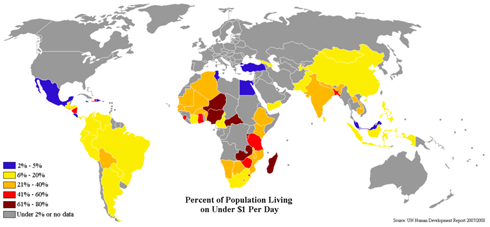Scarcity is a word that often finds itself placed in many of the world’s contexts. The world’s scarce resources are undistributed to each person unevenly, so it is only natural that the problem of poverty arises in regions that are less wealthy. Harvard economist Jeffrey Sachs discusses a potential solution to poverty in his 2005 bestseller The End of Poverty.
In one interview, Sachs emphasizes what he calls “clinical economics.” The idea is that countries, like patients, require analysis, diagnosis, and prescription. Factors like government corruption and disease limit a country’s opportunities to effectively participate in the world market. Sachs suggests that rich nations donate 0.7% of their national GDP every year to remedy these problems and eliminate poverty by adding to a country’s wealth. If this plan is followed, by 2015, no one should be living on under $1 per day.
I think that the idea of foreign aid to end poverty is justified. Richer countries should do all they can to support poorer countries, and such help can be rewarding later for increased trade capabilities and benefits. Increased global security is one example.
Word count: 196

